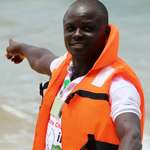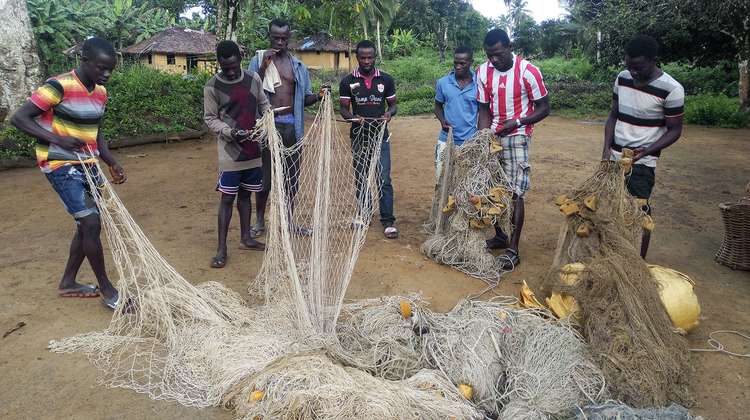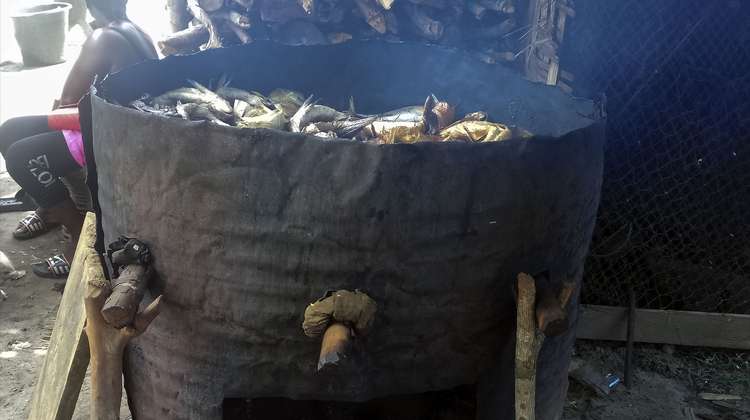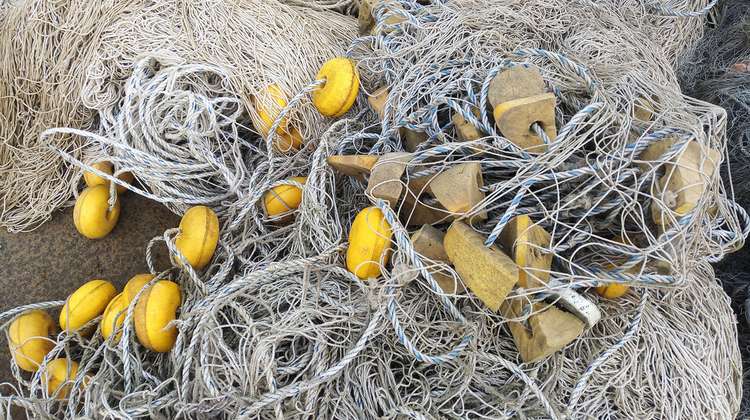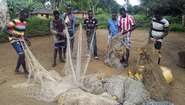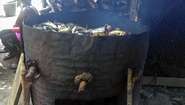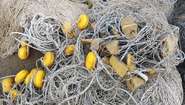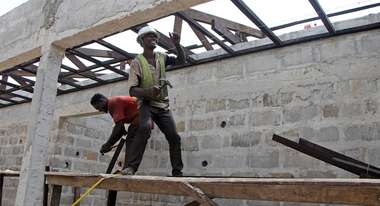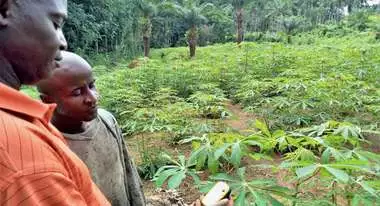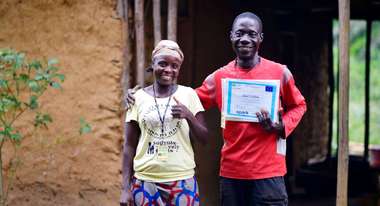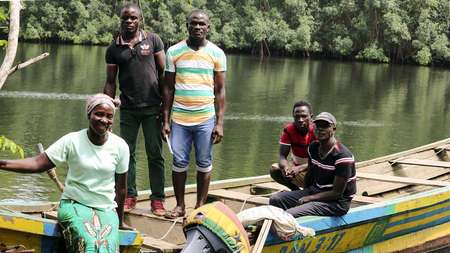
How Fishing Families Are Defying Climate Change
Kpalleh Gbawleh is a 55-year-old artisanal fisherman from the fishing community of Toto, Liberia. Kpalleh and his wife Savanna, 48, have six children. For a long time, the family didn't have enough income to fund their education. Together with Welthungerhilfe, Kpalleh and Savanna are working hard to change that.
“I was struggling many months to pay my children’s school fees, but today I get by with the monthly income I receive from fishing,” Kpalleh says. He is participating in Welthungerhilfe’s climate change project and, thanks to what he has learned, he is now able to save some money every month. The project helps fishing families to adapt to the challenges of climate change: Increasing sea temperatures lead to the destruction of coastal ecosystems such as mangroves and wetlands. This is a disaster for local fishers, as fish, mussels and crabs use them as habitats and spawning grounds.
Year-round Income Thanks To New Fishing Methods
Small scale fishing provides livelihoods for more than 17,000 inhabitants along the Atlantic coast of Liberia. Most of the fishers do not have a formal education, but use the fishing skills passed on from one generation to the next. Hook and line fishing with paddle boats is the most common type of fishing employed by the smallscale fishers in Liberia. Their fishing activities are seasonally limited and particularly low between June and September. During this time, it’s often not possible to leave the coast in the small boats due to the rough weather. In addition, climate change leads to an increase in extreme weather events such as heavy rainfall and storms. These seasonal fluctuations make the markets very unstable.
Welthungerhilfe wants to enable the fishing families to earn an income throughout the year, in a sustainable way. The project includes new fishing techniques, technical training in fish processing, boat maintenance, and marketing. Kpalleh has already acquired new fishing skills and learned how to operate and maintain a motorised boat. In the past months he has been saving up, getting closer and closer to achieving his dream of owning a motorised boat.
Kpalleh Is Already Planning His Next Venture
He also reached out to his two brothers. Nah and Pantee Gbawleh are fishermen as well – and experienced in carpentry and pit sawing. They helped prepare the wood for Kpalleh's new venture: a larger, semi-industrial wooden fishing boat. A local artisan helped produce the vessel. Kpalleh is now the proud owner of a colourful motorised boat. When he goes fishing now, he can already see the difference this improvement makes: “My daily income has leaped from $8.33 to $51.28,” he says. He is now able to pay for the education of his younger children.
Kpalleh is confident about the future and is already planning how to put his next idea into practice: “We are living in a simple hut at the moment, but I am going to build a solid mudbrick house with four bedrooms, where my family and I can live happily as we fulfill our dreams.”
How Welthungerhilfe supports fishing families in Liberia
- The Support Climate Change Sensitivity and Adaptation Strategies in Liberia Project (SCCSASIL) aims to help fishing families adapt to climate change by exapnding their skill sets and strengthening their resilience.
- The project supports sustainable fishing practices from production through to processing and marketing.
- Families in Sinoe, River Gee and Grand Gedeh counties will benefit from SCCSASIL.
The project is supported by the German Federal Ministry for Economic Cooperation and Development (BMZ).




